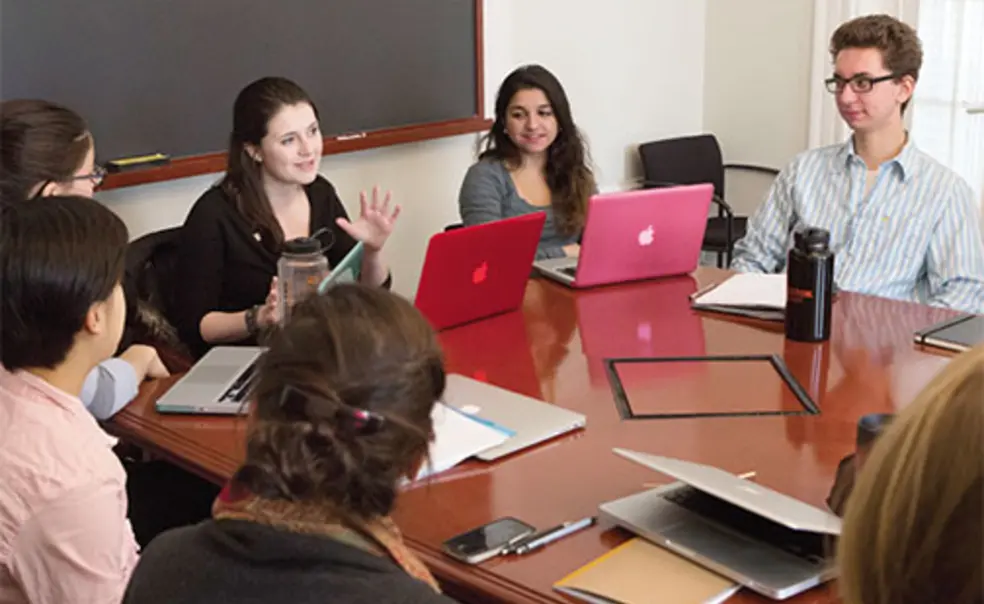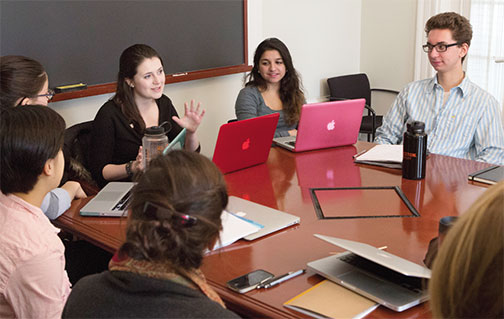A Strategic Look into Princeton’s Future
Princeton today is a jewel of a university, with talented students, brilliant scholars, a magnificent campus, enthusiastic and dedicated alumni, a commitment to service, and a well-earned global reputation for excellence in teaching and research. A place on this campus is a gift for everyone who receives it. Precisely because the University offers so much, all of us here have a responsibility to ask what Princeton should be tomorrow and how best it can make a difference in the world.
That is why we have begun a strategic planning process that will engage many members of the University community in exploring the evolving needs and challenges facing Princeton. We will create a framework for assessing and prioritizing new initiatives while focusing on key questions about the fundamental elements of the University’s mission: world-class teaching and research in the service of the common good.
I embark on this process realizing that on college campuses the mere mention of “strategic planning” can sometimes cause allergic reactions. Collegiate planning can be unduly long and cumbersome, generating voluminous reports that amount more to a “wish list” than a set of strategic choices. Board of Trustees Chair Katie Hall ’80 and I spent months discussing strategic planning with several past and present trustees so that we could develop an appropriately nimble and compact process.
Our aim is to work through fall 2015 to generate a revisable framework to guide decision-making by our board and administration over the next five to 10 years. The point of this process will be to articulate values and standards against which to judge proposals that come forward later, not to compile a comprehensive set of recommendations. Committees and task forces at the trustee level and on campus will gather data, conduct assessments, and prepare reports to assess the University’s current situation and shape our thinking about how to maximize Princeton’s resources. What follows are four key questions to be explored:
- How best can Princeton sustain teaching and research excellence that makes a difference in the world? Princeton’s most profound contributions to the public good depend upon the knowledge we generate and the leaders we educate. We must ensure that faculty members have the resources needed for research and scholarship of the highest quality, that graduate students have support that enables them to thrive at Princeton and beyond, and that our curriculum, pedagogy, and residential life prepare our undergraduates for a lifetime of challenges and opportunities.
- What new academic initiatives should Princeton pursue to address long-term issues of fundamental importance? Great universities remain vigorous only if they move boldly to address questions that acquire new urgency for their mission. Sometimes — as with neuroscience — that means moving into new fields of knowledge. Sometimes — as with the creative and performing arts — that means embracing questions that are as old as civilization but that have growing relevance to Princeton’s role in the world.
- What must we do to make service central to the mission of the University? Service, leadership, civic engagement: These concepts have special resonance at Princeton, which has long defined itself partly through President Woodrow Wilson 1879’s call to be “in the nation’s service” and which at Alumni Day applauded Justice Sonia Sotomayor ’76’s call to be “in the service of humanity.” We must ask both how we can prepare students for careers and lives connected to a larger purpose, and how the University itself can play a leadership role in higher education.
- How can Princeton enable more undergraduate students to contribute to the world? We now find ourselves turning down a higher number of qualified applicants than at any time in history. We have a responsibility to ask whether we might be able to say “yes” more often while still preserving Princeton’s special characteristics. Adding a few more places to the undergraduate class would also enable us to increase socioeconomic diversity, and to consider taking transfer students and accommodating international exchange students, while maintaining our traditional commitments, including those to the Princeton family.
We are exploring these issues at a time when the landscape for Princeton and for all of higher education is changing rapidly due to evolving issues such as growing economic inequality, globalization, online education, concerns about long-term economic stagnation, and tightening federal research budgets.
My colleagues and I will provide periodic public updates throughout the process and seek feedback continuously. Discussions at the Council for the Princeton University Community and elsewhere have already prompted some refinements to our key questions; I expect that will continue as the process unfolds.
Answering these questions inevitably will entail making difficult choices. With such extraordinarily talented people in the University community, Princeton is capable of accomplishing great things. But we know that, ultimately, we cannot do everything we would like — we must choose our priorities wisely. At a time when Princeton’s contributions to the world are both profoundly important and intensely scrutinized, we have an obligation to be as thoughtful as possible about the path we take.














No responses yet